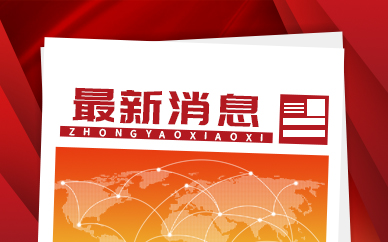 (资料图片)
(资料图片)
NEW YORK, June 1 (Xinhua) -- "De-risking, not de-coupling" -- the principle of the economic approach to China recently agreed on by the Group of Seven (G7) countries -- can lead to massive uncertainties, reported the U.S. Brookings Institution on Tuesday.
""De-coupling" any major country"s economy from China was always impossible and sounds harshly radical, but it"s been a commonly used and divisive word in China policy circles," said the article authored by Paul Gewirtz. "The word "de-risking" sounds considerably more moderate, makes intuitive sense, and has now produced a highly publicized consensus on China policy among a large variety of different countries."
In reality, the word "de-risking" is extremely ambiguous and its meaning uncertain. The word itself tells us very little about China policy. Its scope all depends on how the word is interpreted, wrote Gewirtz, the Potter Stewart Professor of Constitutional Law at Yale Law School and the Director of the Paul Tsai China Center at Yale University.
"Very likely, different countries will interpret and apply "de-risking" differently, creating divergence and not consensus -- in some countries producing a modest scope of economic separation, in some potentially a policy similar to "de-coupling"," said the essay titled "Words and policies: "De-risking" and China policy."
There are massive uncertainties associated with such wording, including what the "de" in "de-risking" means, what counts as a relevant risk, and how a particular risk is evaluated and balanced against a country"s other national interests in deciding whether action should be taken against China and what that action should be, it noted.
标签:
-

G7's "de-risking" policy can lead to multiple uncertainties: Brookings Institution 焦点热议
NEWYORK,June1(Xinhua)-- "De-risking,notde-coupling "--theprincipleoft
-

我国海上首个百万吨级二氧化碳封存工程投用
↑5月31日拍摄的中国海油恩平15-1原油钻采平台上的二氧化碳回注井。我国海上首个百万吨级二氧化碳封存工程
-

环球热点!重庆市长寿区小学入学政策(附划片区范围)
招生对象2023年8月31日(含8月31日)前,凡年满6周岁及以上儿童,应当依法接受并完成义务教育。就读特殊教
-

以差异化竞争拓展全球健身市场版图 康力源将于6月5日开启申购 当前通讯
以差异化竞争拓展全球健身市场版图康力源将于6月5日开启申购2023-06-0216:29来源:证券日报网本报记者李亚
-

TMT关注度升温 广发电子信息传媒产业精选近一年收益近50%-世界观点
近期,AI板块表现较为强势,TMT行业主题基金关注度升温。据招商证券研究报告《TMT浪潮来袭,哪些主题基金值
-

《暗黑破坏神4》鼓励新兵怎么做? 鼓励新兵任务攻略
暗黑破坏神4游戏中的鼓励新兵支线任务怎么做可能很多玩家不太清楚。下面小编就给大家带来暗黑破坏神4鼓励新
-

晨跑锻炼竟然还能跑出“病”?健身爱好者务必警惕!|每日信息
晨跑锻炼竟然还能跑出“病”?健身爱好者务必警惕!---在越来越关注健康生活的当今社会,产生了一大批热...
-

环球热点评!首周下载量碾压ChatGPT!谷歌20年老员工叛逃,创立第二个OpenAI?
Character AI这款应用,可以让用户自由创建AI角色,并与它们聊天。这支名叫CharacterTechnologies的独角兽
-

全球微速讯:民生银行济南千佛山支行开展存款保险宣传活动
民生银行济南千佛山支行开展存款保险宣传活动,金融,千佛山,存款人,民生银行,存款保险,银行网点
-

又是电鱼!重庆警方连续破获多起非法捕捞水产品案件 全球今亮点
每年3月1日0时至6月30日24时我市境内754条禁捕河流全面禁止垂钓而电鱼等严重破坏渔业资源的行为更是公安机
-

每天踢球三小时的非典型琴童,斩获这项小提琴国际大奖
在刚刚结束的意大利第30届安德烈·波斯塔契尼(AndreaPostacchini)国际小提琴比赛中,来自上海音乐学院附
-

热资讯!看完这档节目,我重新理解了“漂亮”
有人认为如今的00后很自我、不懂社交、不求上进。也有人认为,现在的年轻人都是躺平党,遇到困难缺乏耐挫力
-

《梦中的那片海》哪个台播出 梦中的那片海小说叫什么?
梦中的那片海在CCTV8、腾讯视频平台播出,故事围绕一群北京青年的创业、追求梦想展开,肖战李沁等人主演。上
-

寒江雪歌词完整版_寒江雪歌曲简介
欢迎观看本篇文章,小升来为大家解答以上问题。寒江雪歌词完整版,寒江雪歌曲简介很多人还不知道,现在让我
-

今亮点!儿童杂技剧《奇幻森林漫游记》在贵阳首演
《奇幻森林漫游记》演出现场。瞿宏伦摄《奇幻森林漫游记》演出现场。瞿宏伦摄《奇幻森林漫游记》演出现场。
-

塞尔达传说王国之泪魂之神殿怎么过[多图]-环球短讯
塞尔达传说王国之泪魂之神殿怎么过?游戏中,玩家要想开启魂之神殿,需要先前往监视堡垒,击败幻影盖侬,之
-

即时看!心理健康这堂课,是时候补上了
近日,教育部等十七部门联合印发《全面加强和改进新时代学生心理健康工作专项行动计划(2023—2025年)》(
-

国产大飞机实现蓝天梦 航空产业链书写高端制造新篇章 热资讯
【国产大飞机实现蓝天梦航空产业链书写高端制造新篇章】5月28日,由我国完全自主研发的C919大飞机,从上海
-

哈医大二院在全国药学科普大赛中获“卓越作品奖”
中新网黑龙江新闻6月2日电(田为方若冰)5月28日,中华医学会临床药学分会2023年全国学术会议药学科普大赛全
-

大河向东流 天天观点
“大河向东流”是一句歌词出自于《好汉歌》,正确歌词是“大河向东流哇天上的星星参北斗哇”。歌名:好...
X 关闭
X 关闭
- 苹果手机怎么看全网通还是移动版_怎么看苹果手机是不是全网通
- 90的十进制是多少_90 10是不是能不能去掉0的小数
- 今日热搜:美股异动 | 塔吉特跌近2% 摩根大通将其评级下调至“中性”
- 看点:都知道陈建斌前女友是吴越,却不知蒋勤勤前男友,星二代、已去世
- 盛达资源(000603):6月1日北向资金减持83.09万股
- 金鸡亭小学改扩建项目秋季投用 包含一栋六层教学楼、一个七彩运动场等
- 湘西矮寨交警雨中守护平安
- 报道:今年全国快递业务量已达500亿件
- 太割裂了!首尾业绩差超100个百分点,主动权益基金年内平均亏超3%
- 锦浪科技大宗交易成交23.00万股 成交额2131.64万元-全球观天下
- 好评中国丨守护童心 筑梦未来
- 居家百货类目_居家类目下将商品放置在正确类目下的是
- 实控人降低减持比例 拟引入国企战投 傲农生物股价“乘电梯”从跌停到涨停
- 南网储能公司加快提升抽水蓄能和新型储能核心竞争力
- 少年志|“大朋友”习近平的礼物 世界微速讯
- 6月金股密集出炉!这些领域正酝酿大级别行情?国家队重仓股被券商密集推荐
- 丝瓜的功效与作用及禁忌_世界热闻
- 当前讯息:男孩六一表演化身行走表情包 网友:主打就是一个自信和投入
- 全球看热讯:动视CEO科蒂克:美国公司落后于索尼、腾讯等公司
- 当前热文:海盗船2000D AIRFLOW机箱评测:精致的酷黑小机箱
- 杭州湾北岸海事机构首次联合开展危化品泄漏应急处置-当前信息
- 广东佛山:18条龙舟夜训 备战端午节漂移赛
- 电动车企Lucid配股筹资30亿美元
- 涨停雷达:汽车整车个股异动 亚星客车触及涨停
- 环球速讯:东风航天城十二小时
- 即时:6月1日 10:46分 东华软件(002065)股价快速拉升
- 世界今日报丨Alex 白羊座2023年6月运势详解
- 乌能源部:乌克兰遭遇2月以来最大规模停电,近200万人受影响
- 环球今头条!非京籍可以在北京上职高吗?私立高中和职高哪个好?
- “小”商品“玩转”国际大市场
- 世界讯息:中国海油巴西Buzios5项目投产
- 【热闻】安全港说
- 全球讯息:立高食品(300973):5月31日北向资金减持1.68万股
- 天天讯息:iPhone手机怎么连拍 iPhone手机怎么连拍
- 蒸鸡蛋和煮鸡蛋有什么区别?
- 每日信息:深圳市悦多鑫医药有限公司虚假宣传案
- 世界视点!茄果类蔬菜有哪些种(茄果类蔬菜有哪些)
- 超乎价位的降噪能力——魅蓝 Blus2S主动降噪耳机测评
- 天天短讯!各阶段回报均位于同类前1/4,华泰柏瑞新利混合攻守有道捕捉股债机会
- 迈普医学:神经外科开颅手术高值耗材按产品类别划分,主要包括颅骨材料、脑膜材料、止血材料、闭合材料等
- 世界即时:双牌县开展2023年“全国科技工作者日”活动
- 7县城镇居民人均收入超8万元,义乌、玉环超过北上广深 全球消息
- 多地发高温预警_极端高温会再来吗-报资讯
- 郑州广电宽带客户端电话_郑州广电宽带客户端_当前热门
- 全球热点!第四届BIONNOVA生物医药创新者论坛
- 小度手机京东618首销,6期免息。-焦点关注
- 看点:山东理工大学2+2国际班留学招生
- 618手机厂商杀疯了?荣耀CEO赵明:没有创新的产品,大家不会买单!
- 【全球热闻】中国城市社会综合发展排名100强:北京超越上海,深圳超过广州
- 今日pd900钯金回收价格查询(2023年05月31日) 环球焦点
- 中国投资开发(00204.HK)与中盈华夏签订战略合作意向书
- 今日热门!上海治疗白癜风去哪家医院-白癜风早期好不好治疗
- 稳增长政策接续发力预期升温_快讯
- Dota赛事知名解说YammerS已经确认离世,原生家庭不和睦真的会害死人啊…… 热点
- 做好企业发展的“配速员” 白水跑出“赢商”加速度
- 弘业期货:开工维持高位,成材继续震荡探底|时讯
- Keria对阵LPL辅助交手记录:Meiko仅赢下1个小局为辅助中最少
- 世界热点!经常夜跑的好处和坏处_夜跑的好处和坏处
- 本周六,合报小记者两场活动可报名
- 信用卡到期会自动扣款吗?第三方停息挂账服务是否可靠?|当前短讯
- 一层楼6户墙面被砸穿惊动整栋楼业主 社区:未砸承重墙但可能影响抗震性 当前关注
- 河北省检察机关帮助542名未成年人重返校园
- 今年前四个月物流需求持续扩大 多领域增速加快
- 简单有效的美白方法_大家一起来了解一下吧
- 古色古香的意思是什么(古色古香的意思)|每日聚焦
- cad2014打开图纸显示不全怎么处理(cad2014打开图纸显示不全) 环球百事通
- 科幻产业新技术新产品展开幕 游客可模拟探索异星场景
- 福建立法:拟完善对献血者的荣誉褒奖、免费用血等优待
- 哪些水果含高蛋白?_环球热议
- 放学后茶会磁带_放学后茶会-环球热文
- 当前要闻:小学生篮球赛场上家长群殴,官方:公安已介入
- 和评理|对华关税重估 美政府应秉持客观理性态度
- 多米尼克 蒂姆_多米尼克阿迪亚|百事通
- 焦点日报:铃木雨燕保养手册|Suzuki Swift Maintenance Manual
- 环球焦点!刘佩琦说金鸡奖15个评委都投给了朱一龙:我心服口服
- 丹霞天生桥形成原因_天生桥形成原因
- 迪丽热巴佟大为领衔主演 《公诉》聚焦“打击网络犯罪”_全球新视野
- 焦点讯息:阿里再造阿里:菜鸟、盒马、阿里云“单飞”,谁是分拆第一股?
- 视点!全球在建规模最大海拔最高光伏电站开建
- 2023青岛儿童节活动汇总(持续更新中)


